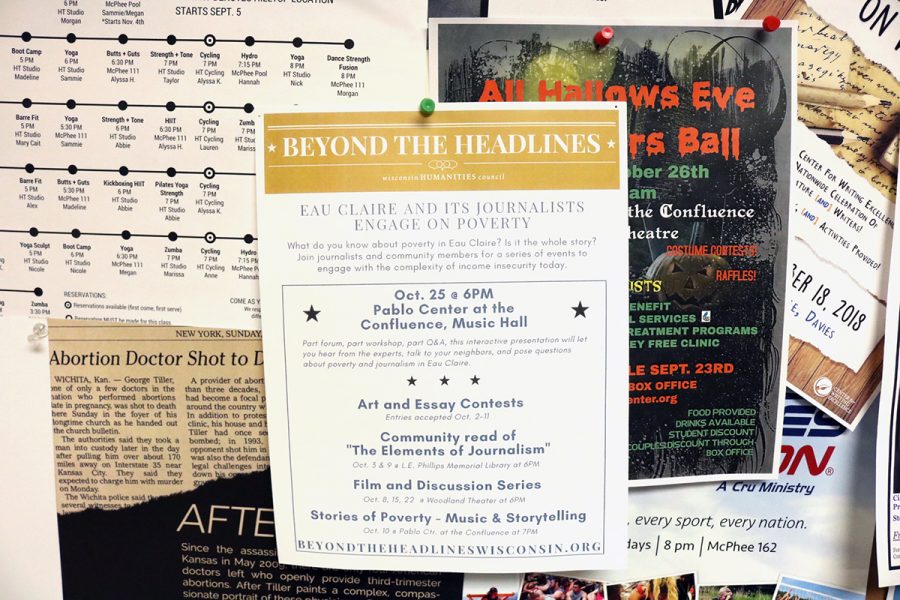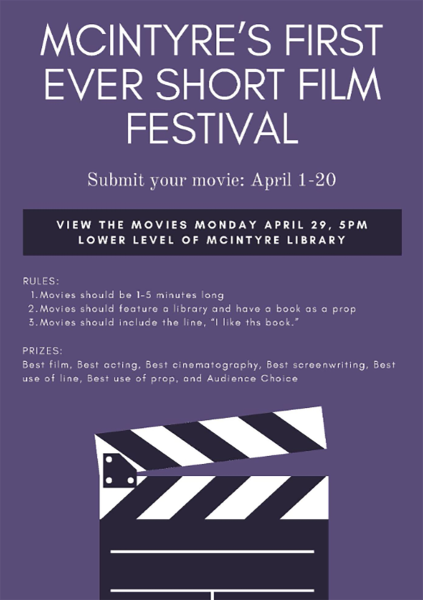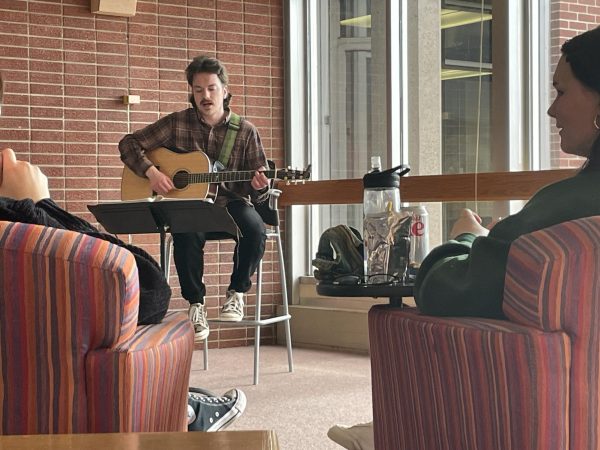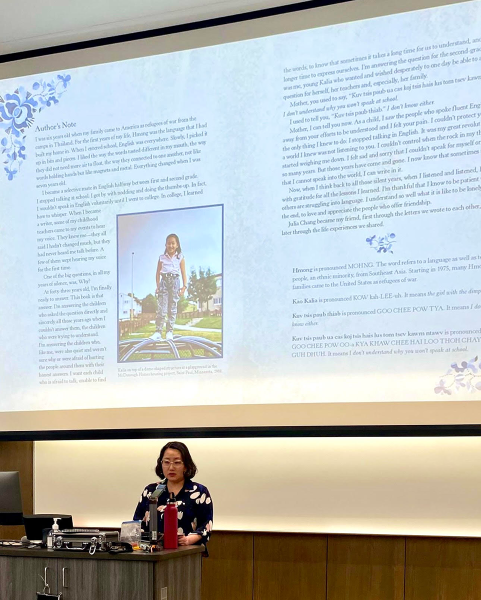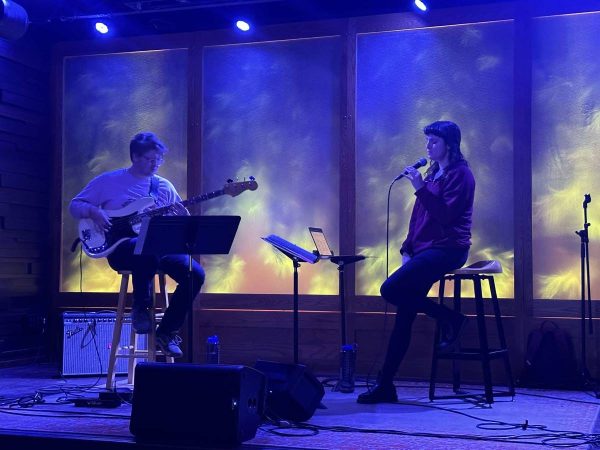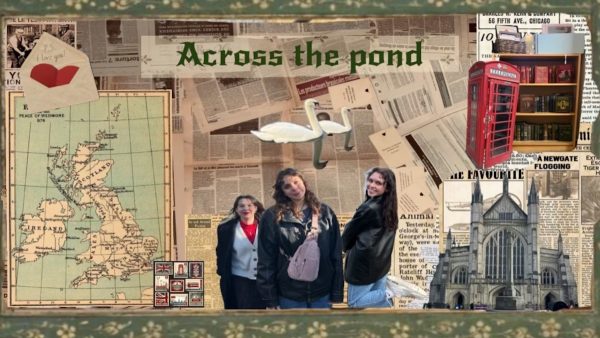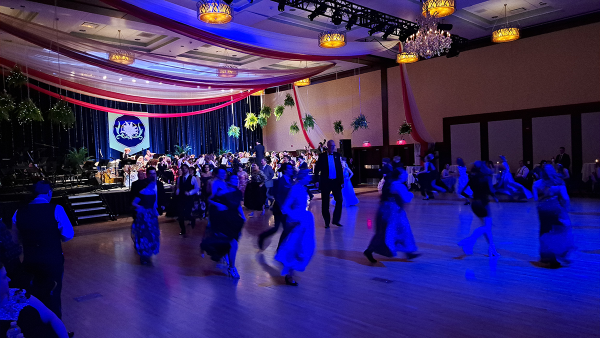Beyond the Headlines Eau Claire acknowledges local poverty
The Building Trust series covers the community issue of poverty to ensure the relationship between the public and media is not broken
More stories from Ta’Leah Van Sistine
Photo by Sam Farley
An event poster clings to the bulletin board in Hibbard Humanities Hall, with the goal to turn some heads.
The Wisconsin Humanities Council has noticed, in recent years, the growing concerns about the public’s relationship with the media. Not only has decreasing trust in the media become a notable issue, but so has the declining amount and quality of local news reported by traditional media outlets.
These worries and issues are what spurred the Beyond the Headlines initiative, according to its website. There is hope that maybe someday mutual transparency and honesty between the public and media can be instituted once again.
Beyond the Headlines has established programs in four Wisconsin cities — Madison, Wausau, Superior and Eau Claire. The steering committee of each Beyond the Headlines location chooses a unique topic for their designated community.
For Madison, the topic is “Wisconsin’s Water Future”; Wausau’s is “Building Trust: Law Enforcement, the Media, and You”; Superior’s discusses “Communicating in a News Desert”; and Eau Claire’s is titled “Building Trust: Eau Claire and Its Journalists Engage on Poverty.”
Jan Larson — chair of and presenter for Eau Claire’s Beyond the Headlines steering committee and department chair for the communication and journalism department at UW-Eau Claire — said the general topic of poverty was chosen due to its great significance and presence in Eau Claire.
“It is a community problem,” Larson said. “When we hear the word ‘poverty,’ we might have certain images that spring to mind, but the face of poverty is multi-generational, multiracial. We have college students living in poverty, we have elderly living in poverty, we have children, we have those who are addicted, those who are disabled. We have so many different faces of poverty.”
Larson said the steering committee had been planning their approach to this topic since March 2018. The plans eventually transpired into a series of events that have taken place throughout the first three weeks of October and will continue to take place towards the end of the month and into mid-November, with one final discussion.
These activities have included three film showings and a community read of “The Elements of Journalism: What Newspeople Should Know and The Public Should Expect” by Bill Kovach and Tom Rosenstiel.
Julian Emerson, a reporter for the Leader-Telegram, said he also helped organize the event “Hard Times: An Artistic Expression of Poverty in Eau Claire,” which took place at the Jamf Theatre of the Pablo Center at the Confluence and raised money for the Community Table and L.E. Phillips Memorial Public Library.
All of these events have been leading up to the headline event that will take place at 6 p.m. Oct. 25 at the Pablo Center at the Confluence in the Riverfront Rehearsal Room.
The free event, titled “Building Trust: Eau Claire and Its Journalists Engage on Poverty,” will feature Joan Garrett McClane and Joy Lukachick Smith, who are Pulitzer Prize finalists, Dominique Brossard, the department chair of Life Sciences Communication at UW-Madison and Sarah Ferber, who is an organizer for Chippewa Valley EX-Incarcerated People Organizing. The night will begin with a forum and then shift to a moderated discussion with break-out groups.
Larson said the event will allow both journalists and members of the community to share their knowledge about the topic of poverty.
“We want to hear from the experts,” Larson said. “We want to hear from the journalists who have covered poverty in other communities, but we also want people to have a chance to talk to each other, and to ask questions.”
Emerson said he will be moderating the event and intends to add his personal perspective on the topic. He said he admitted the outcome of the discussion is not for certain, but the ultimate desire to spur conversation amidst journalists and members of the community is prevalent.
“(The event aims) to highlight the role that journalism can play in educating people about issues that matter in their community,” Emerson said. “Hopefully in that process, it motivates people to become engaged.”
Ultimately, the original purpose of the Beyond the Headlines initiative was re-emphasized through Larson’s thoughts on this series and the overall impact it will have on participants.
“I’m hoping that by having selected this topic, people in the community who work in this sector — whether it’s in trying to help people find affordable housing, or help people find work, so that they can escape that cycle of poverty — that these people will know how to better interact with journalists and journalists will know how to better interact with these folks, so that we can get to the heart of the story,” Larson said.
Those interested in the headlining event, “Building Trust: Eau Claire and Its Journalists Engage on Poverty,” can obtain tickets online through the Pablo Center at the Confluence.
Van Sistine can be reached at [email protected].

